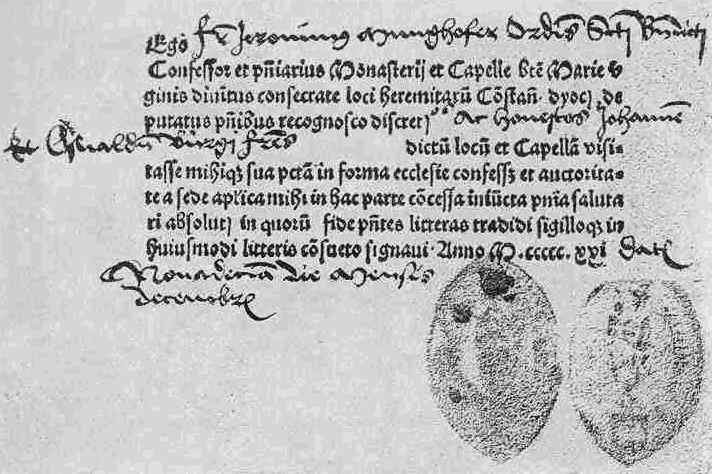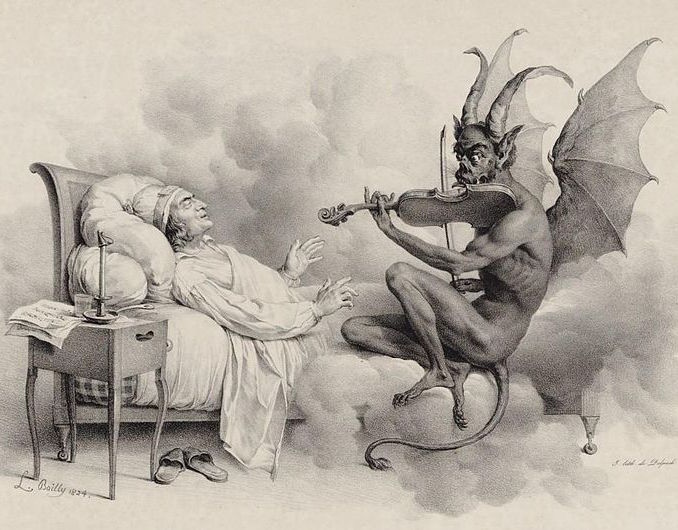One of the supreme masterpieces of Romantic fiction and Scottish literature, The Private Memoirs and Confessions of a Justified Sinner is a terrifying tale of murder and amorality, and of one man's descent into madness and despair. James Hogg's sardonic novel follows a young man who, falling under the spell of a mysterious stranger who bears an uncanny likeness to himself, embarks on a career as a serial. Confessions of an Eco Sinner. Read a sample Read a sample Description; Details; Reviews; The road to hell is paved with good intentions. Ever wondered if declaring support for fair-trade and then chucking Kenyan beans from your shopping trolley to reduce food miles really added up? Or whether the women in Bangladeshi.

- Confessions of a Sinner January 27 Making Time for Your Dream is a seminar by author and founder of Prosper Projects, Dr. If you want to learn more, follow the link.
- Essays for Private Memoirs and Confessions of a Justified Sinner. Private Memoirs and Confessions of a Justified Sinner essays are academic essays for citation. These papers were written primarily by students and provide critical analysis of Private Memoirs and Confessions of a Justified Sinner by James Hogg. Religious Fanaticism in The Private Memoirs and Confessions of a Justified Sinner.
One of the highlights of this year’s Edinburgh International Festival is undoubtedly a new production of Paul Bright’s Confessions of a Justified Sinner, which runs between August 19 and 22. In a year which is strong on Scottish literary adaptions (Alasdair Gray novel Lanark is also being staged, Paul Bright’s Confessions is based on James Hogg’s masterwork The Private Memoirs and Confessions of a Justified Sinner.
First published anonymously in 1824, the Confessions is one of the defining texts of modern Scottish literature —- and an outstanding novel within European traditions. Partly based on E T A Hoffman’s Die Elixiere des Teufels (The Devil’s Elixirs) of 1815, Hogg explores the downward spiral of the unappealing Robert Wringhim, who comes to believe in the justness of all of his actions by virtue of being among God’s saved. The novel plays with Calvinist concepts of predestination and ideas around free will —- whether our actions, or God’s plan, decide on our salvation and damnation.
If this sounds worthy but staid, the Confessions is in fact fast, dramatic, and shocking. Much of the action is focused around Wringhim’s violent engagements with his somewhat more wholesome estranged brother, George Colwan. Wringhim’s beliefs are fostered by his mother and her mentor and alleged lover, the Rev Wringhim; and enforced by his possibly imaginary “friend” Gil-Martin, who is part doppelganger and part Devil. Gil-Martin encourages Robert (perhaps) to commit ever more criminal acts – culminating in murder.
The only certainty in Hogg’s vision is that evil is present within the outwardly civilised – and inwardly raucous – Scotland of the early 18th century. Glasgow emerges as a religious hotbed. Edinburgh, where much of the action takes place, is a seething, brawling city. In the semi-wilderness Edinburgh areas of Arthur’s Seat and Salisbury Crags, atmospheric effects enhance the visual qualities of this disturbing and unsettling text.
Yet the success of the novel is a modern phenomenon. The original reviews were mixed and half of the first edition was remaindered. It was only after World War II that Hogg’s now-acknowledged masterpiece came into its critical own, when in 1947 French Nobel laureate André Gide provided a new introduction.

Gide had read the novel in Algiers in 1924, alongside John Stuart Mill’s Autobiography and his utilitarian classic On Liberty. Finding “a renewal of topical interest” in Mill, given the “menace of ‘totalitarianism’”, Gide was “voluptuously tormented” by Hogg’s book. He admired Hogg’s exploration of moral questions and his “ingenious” psychological portrayal of the Devil. He found it remarkable “that a civilized country existed at a relatively recent period … where such an aberration of Faith was possible”.
Confessions on the boards
Hogg’s central theme of religious extremism has added resonance today, of course. Writing 60 years after Gide, the Scottish detective novelist Ian Rankin admired Hogg’s treatment of the theme of the purification of apostasy, arguing this made the book enduringly relevant and resonant for modern audiences. Anchored in Scottish experience, Hogg’s reflections on a distorted form of Calvinism make this a defining text of religious extremism, past and present.
Though there have been several adaptation of Confessions before, Paul Bright’s version is probably the one which most directly engages with the book’s narrative ambiguities, while taking the story some distance from its original material. First developed in 2010 and performed in Scotland, Ireland and Sweden, The Guardian listed it as one of the top ten theatre productions in 2013, admiring its exploration of “the borderline between the real and the imagined”.
With apologies in advance for giving the game away slightly, theatregoers are treated to a pre-performance exhibition about Bright. He is depicted as a forgotten writer who “redefined Scottish theatre in the 1980s” by masterminding a series of experimental adaptations of the play in locations ranging from a Celtic pub to the summit of Arthur’s Seat. He is then said to have mysteriously disappeared until his death in 2010. When the performance begins, the lead actor picks up this tribute, only for it to become clear that this is actually part of the play itself.
Bright himself has left suspiciously few traces. A review of the 2013 production in the Telegraph commented: “those of a suspicious nature – and some critics – might conclude that … Paul Bright’s Confessions of a Justified Sinner is a witty and admirably elaborate hoax”, noting the audience is explicitly reminded acting is “lying and getting away with it”.
All this is wholly in the spirit of the original and adds a fresh interpretative layer to an already complex whole. Nothing is as it seems. The central story in Hogg’s novel is presented through two main versions: the alleged facts presented by a possibly unreliable editor, and the memoirs of Wringhim. These are combined with oral testimonies, a description of opening the suicide’s grave and the quoted statements of Gil-Martin. His ambiguous central statement – which can be read as a proclamation of salvation or damnation – is: “I have but one great aim in this world, and I never for a moment lose sight of it”.
Above all, Confessions is stunningly duplicitous. In my afterword to the Merchiston Press edition from 2009, I described reading the book as an almost interactive experience. The reader is required to make personal decisions about what has actually happened, and judgements on the reliability of the text and its narrators. Both Hogg’s and the current Confessions are wholly based on cross-tellings, rumour, and half-rememberings. Perhaps it is this shifting nature that ultimately has an enduring appeal to modern audiences. We live in a world of propaganda, misinformation and multiple sources of information. From the distance of two centuries, Hogg’s masterpiece captures our confusion and uncertainty perfectly.
Paul Bright’s Confessions of a Justified Sinner is at the Edinburgh Queen’s Hall from August 19 to 22
George Colwan, Laird of Dalcastle
A wealthy, gregarious, and liberal man, he serves in Parliament and is not particularly religious. He marries Rabina but is frustrated by her fanaticism and attempts to convert him. He has two sons by her but only acknowledges George, the firstborn. He makes Arabella Logan his mistress, and the two live as man and wife. He is heartbroken by the news of his son's death, and dies not long after.
Rabina Colwan, Lady of Dalcastle
A zealously strict religious woman, she is disgusted by her arranged marriage to the Laird of Dalcastle, and shuns his attentions. She initially attempts to convert him but eventually chooses seclusion. She bears two sons, but will not acknowledge the first. She gives all her love and imposes all her violent piety on Robert; it is hinted that he may be the son of the Reverend, whose counsel Rabina has long received. She is missing and found murdered, and it is assumed that Robert did this.
Reverend Robert Wringhim
A strict and zealous man, he is the spiritual adviser and friend of Rabina, and the putative father of Robert Wringhim Colwan. He preaches predestination and the infallibility of the elect. He travels a great deal but oversees Robert's development, encouraging him to be more steadfast in his faith and doctrine, and helping secure his release from prison. He becomes concerned by Robert's friendship with Gil-Martin.
Confessions Of A Justified Sinner Themes
George Colwan
The son of Rabina and the laird, George is friendly, handsome, and polished. His good fortune is darkened by the persecution he experiences at the hand of his brother, and he becomes afraid, nervous, and withdrawn. He is unpopular for a time when the town's sympathies extend toward Robert, but the awareness of Robert's dogging his steps seems to be a victory for him. On the eve of a vacation he has planned, Robert and Gil-Martin murder him (although it is suspected that Drummond did it).
Robert Wringhim Colwan
The son of Rabina and most likely the Reverend Wringhim, Robert is a dark, intense, fanatically religious young man who strives to wage war against God's enemies. He becomes one of the elect but often doubts the infallibility associated with such a state. He befriends Gil-Martin, a shape-shifting doppelganger, entranced by his intelligence, spiritual superiority, and flattery. At this friend's urging he begins to carry out persecutions and murders, including that of his brother. He inherits the lands of the laird, but his life becomes misery as he finds he cannot extricate himself from his friend's clutches; he descends into despair and loses his sanity and all sense of time. He flees his home for suspicions of having murdered his mother and a young lady, and spends the rest of his life also trying to escape Gil-Martin. This is impossible, though, and after laying out his account in a memoir, he hangs himself at the urging of Gil-Martin.
Miss Arabella Logan
Confessions Of A Sinful Nun Tv
The Laird's pretty, 'jolly' mistress and adopted mother of George, Miss Logan tenaciously tries to probe the true cause of George's death, and works with Bell Calvert. She is a high-strung woman, prone to fainting, but nevertheless pursues her quest.
Adam Gordon
George Colwan's friend, to whom he confides his fears about Robert.
Thomas Drummond
One of George's friends. Drummond is accused of murdering George because, the night of his death, George was seen quarreling with him, and a man with his likeness was seen at the murder. Bell Calvert also tells Drummond’s story; he was seduced by her until he thought better of it and left. He flees the country from his murder charge and ends up serving in the German military.
Bell Calvert
A prostitute who is witness to the murder of George Colwan. She works with Arabella Logan to secure the indictment of Robert. She is described as elegant and proud but drawn, and her life was one of misery at the hands of men.
Bessy Gilbert
Miss Logan's maid who is summoned to testify in Bell's trial. Her testimony is not useful in convicting Bell, on account of its scrupulousness.
M'Gill

The young student whom Robert torments because he is jealous of the boy's superiority in their studies.
Confessions Of A Justified Sinner Summary
John Barnet
The Reverend's serving-man, whom both he and Robert dislike. He quits his post when the Reverend becomes angry at him for saying that he was Robert's true father. He intervenes to help Robert in a fight, but is not thanked for his trouble.
Gil-Martin
A mysterious creature that may be the devil, a person imbued with unknown qualities, or a figment of Robert's imagination. He can change his appearance to resemble that of others, and claims to understand their innermost thoughts as well. He seduces Robert with his intellect and charm, and encourages him to pursue his religious fanaticism to murder. Robert thinks he is Czar Peter of Russia, as he has no lodgings, an ambiguous background, and elegant deportment. He plagues Robert for the rest of his life, pursuing him and trying to convince him that he has his best interests in mind. He seems to languish, though, and becomes diminished in appearance if not in powers of persuasion. He convinces Robert to commit suicide and says he will do the same.
Mr. Blanchard
A worthy, pious religious man who lives near Robert when he is young. He tries to warn Robert about the extremity of his friend's ideas. Gil-Martin encourages Robert to murder him because he is an enemy of the faith, and they undertake this successfully even though Robert is wary.
Lawyer Linkum
St Augustine Confessions Of A Sinner
The lawyer who reveals that Robert signed a document taking Mrs. Keeler's lands.
Samuel Scrape
Robert's new servant, whom he is told he hired during the six months that he does not remember. Scrape is pleasant to Robert, and even warns him in advance that an angry mob is seeking him for the deaths of his mother and lady. Samuel is witty, humble, and pleasant enough.
Linton
Confessions Of A Sinner Nun Movie Free
Robert's roommate for a time, who helps get him a job at the printing house.
Confessions Of A Justified Sinner Analysis
Mr. Watson
Robert's boss at the printing house, who destroys copies of his manuscript for being evil.
The Editor
The Editor's narrative concerns the history of what he had learned about the events found in the manuscript. His curiosity regarding this story is piqued when he sees Hogg's letter, and undertakes a journey to discover more about what had happened. He confesses he does not know exactly what the manuscript is, and how much is truth or fiction.
James Hogg
The writer whose letter to Blackwood's about the digging up of the suicide prompted the Editor's visit to the site and discovery of the manuscript; he is the author himself, but the novel was published anonymously.
Mrs. Keeler
The old woman and neighbor of Robert, whose daughter he apparently seduces and whose land he apparently steals in order to secure the girl.
